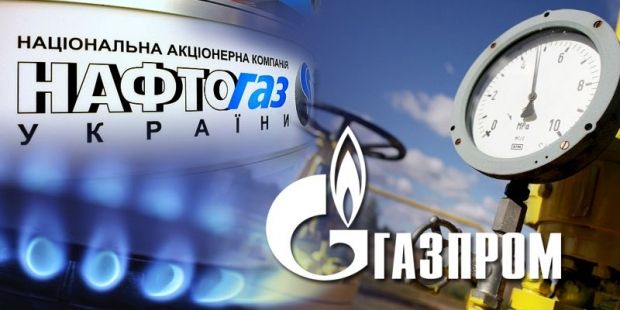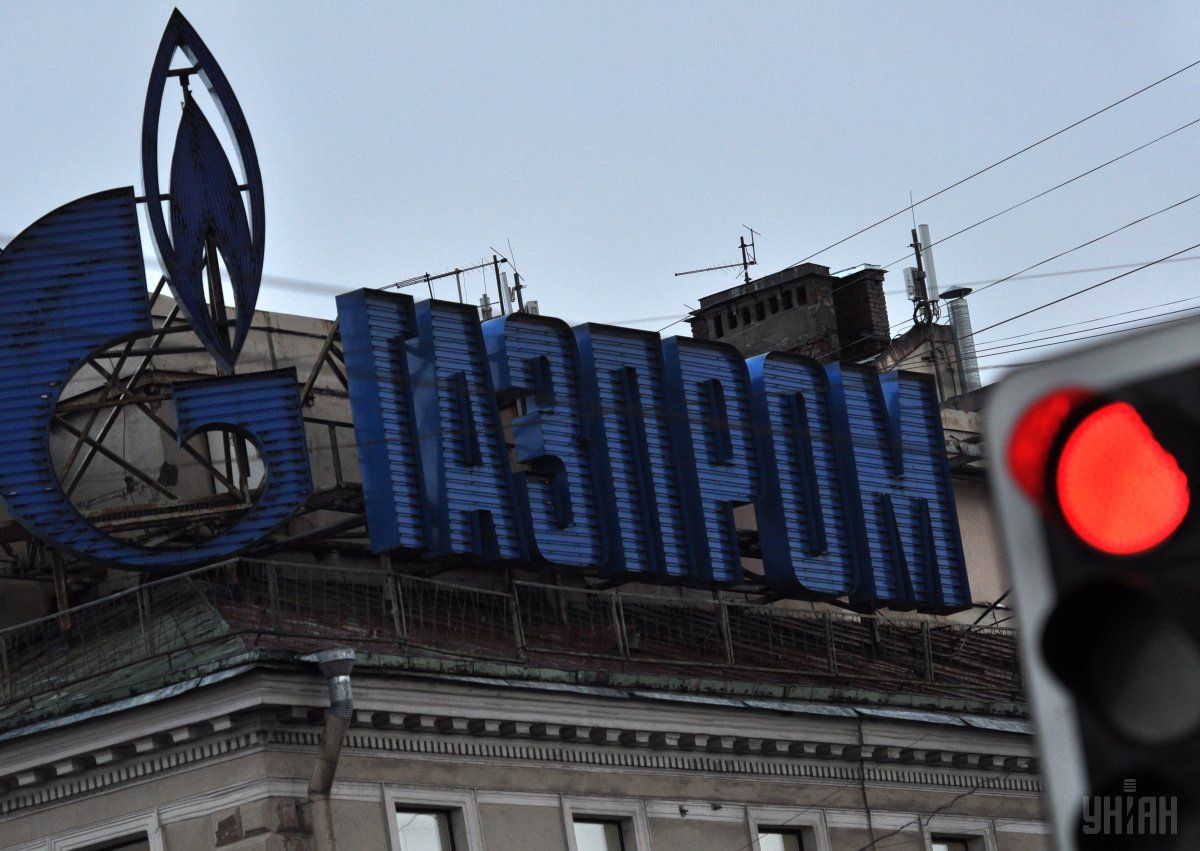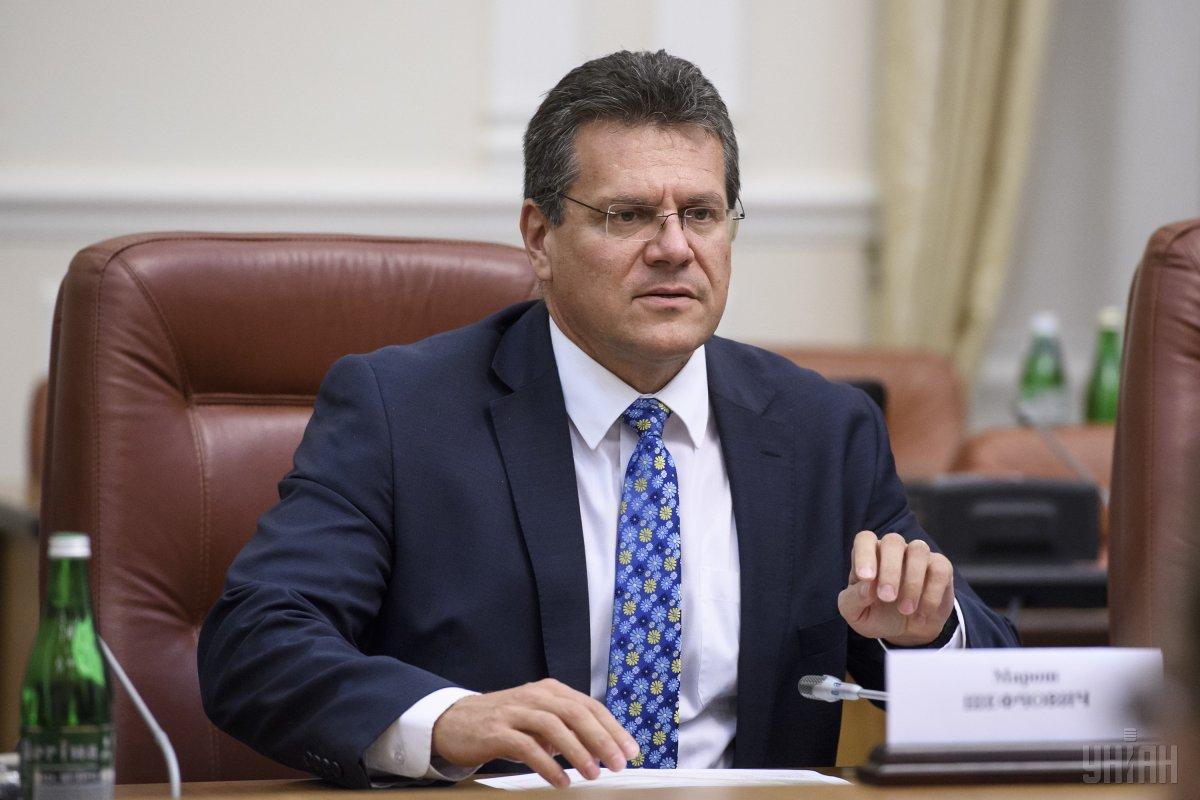
Gas talks in Brussels: Will there be Ukraine transit after 2019
Another round of Ukraine-EU-Russia gas talks to decide the fate of the future transit contract between Naftogaz and Gazprom saw no concrete outcome, as earlier expected. And although the meeting was held behind closed doors, some new details surfaced.
The latest round of trilateral talks involving Ukraine, EU, and Russia on a new transit contract between the state holding Naftogaz and the Russian gas monopoly Gazprom was intended to replace the existing contract set to expire Dec 31, 2019. Negotiations were preceded by bilateral meetings between Ukraine and European Commission, as well as Russia. Headed by Foreign Minister Pavlo Klimkin, the Ukrainian delegation included other MFA officials, representatives of Naftogaz, and national energy regulator NEURC. The Russian side was represented by Energy Minister Alexander Novak and Gazprom chief Alexei Miller. The European Commission was represented by its Vice-President for the Energy Community, Maros Sefcovic.
Such a high level of negotiators is due to the fact that both billions in transit profits for Ukraine and general energy security of the European Union are at stake. On the issue of preserving Russian gas transit depends the very viability of Ukraine's gas transmission system and Ukraine’s status of a country transiting gas to EU markets. The risks to Russia are also quite considerable. Gas transit via Ukraine after 2019 is being discussed in the context of the construction of Nord Stream 2, the gas pipeline bypassing Ukraine. The project has been widely criticized by the U.S. raising a storm in old Europe, which has been trying to turn a blind eye to the political nature of the project, while constantly pressured by Russia and Germany. Also, in the framework of talks, Moscow is trying to resolve the issue of billions of dollars Gazprom owes to Naftogaz in line with last year’s Stockholm arbitration award. As predicted, the latest meeting in Brussels yielded no concrete results: the parties once again discussed the proposals on the table. However, some of the nuances of the closed-door negotiations did surface.
Gas transit prospects after 2019
“Today, another round of talks took place in the trilateral format in Brussels; it was on the issue of transit after 2019. Russians proposed to extend the validity of contracts in 2009 unchanged. We are ready to consider all proposals, but for Ukraine, it is important that the new transit agreement be based on the norms of European law, and we are seeing support from the European Commission in this regard. The position of the Russian Federation is in fact more like a traditional attempt to drag time,” head of Naftogaz Andriy Kobolyev wrote, commenting on the gas meeting on Facebook.
According to him, Maros Sefcovic's team have prepared their proposal for a new contract: “We are grateful for this, we will carefully consider it and hope to discuss it in detail at the next meeting to be held in March-April. In general, the negotiations were interesting, I am discreetly optimistic about them."
Foreign Minister of Ukraine Pavlo Klimkin elaborated on the situation. He said that Gazprom proposed to extend existing contracts with Naftogaz even without expert consultation.
“Mr Miller [Gazprom CEO Alexei Miller] emphasized three times that they were ready to extend existing contracts. At the same time, he said that these contracts could be extended without any expert consultations,” said Klimkin.
In addition, at the latest meeting, Gazprom once again refused to recognize the defeating awards of the Stockholm Arbitration and Ukraine's new gas legislation, which is in line with the European principles and based on which it is proposed to conclude a new transit contract.
“The Russian side does not even consider the fact that we now have completely different legislation, other rules, other laws that reflect European legislation, and that we have to move from agreements to real contracts, which will be based on European rules. Neither the Russian side nor even Gazprom wish to take this into account, at least at this stage. And, of course, the Russian side does not recognize the awards of the Stockholm arbitration,” said Klimkin.
The European Commission took Ukraine's side and insisted that the award of the Stockholm arbitration should be implemented in full.
"We are very grateful for the position of the European Commission, which confirmed that the rulings of courts previously handed down should be fully implemented, and Ukraine has every right to file new claims," Klimkin commented on the situation.
At the talks, Naftogaz once again voiced its offer – the company is ready to reduce claims against Gazprom to $2 billion instead of the stated $12 billion if Ukraine succeeds in maintaining gas transit through its territory.
“In Naftogaz claims under the current lawsuit, out of $12.5 billion, about $10 billion is related to transit termination. If transit continues, in this case our claim will not be worth $12 billion, it will be only $2 billion. US$2 billion is still part of the costs that are now not covered by the current tariff, even without accelerated depreciation of the GTS,” Naftogaz CCO Yuriy Vitrenko said.
This is about a new arbitration case, this does not apply to the previous $2.7 bln debt imposed by the Swedish court ruling.
But Gazprom snapped at this offer, continuing to insist on reaching a settlement on the Stockholm verdicts.

"In the near future, we will see the Swedish court of appeals consider the case. This is a very important point because it is necessary to restore the balance of interests, first of all, in order to proceed further to discuss specific parameters. It is also possible to continue the discussion, for example, on a settlement agreement between the two economic entities,” said Alexander Novak, Minister of Energy of the Russian Federation.
Also, he dismissed as "absurd" Naftogaz's proposal to reduce to $2 bln the claims in a new lawsuit against Gazprom in case the new contract is signed.
“This is a somewhat absurd position on the part of our Ukrainian partners because this is a new lawsuit, which we do not perceive at all, because this is a lawsuit regarding volumes that allegedly will not be pumped in the future if the contract is not concluded. But we all understand perfectly well that in principle this cannot be considered,” Novak said, adding that for the beginning it is necessary to settle previous court proceedings.
New long-term contract on EU conditions
The European Commission this time made a concrete proposal, supporting the Ukrainian position. In their opinion, the parties should discuss the Trans-Eurasian gas transit project, which is valid for more than ten years and with volumes that would justify investments in the modernization of the gas transmission system of Ukraine.

The European Commission also proposed the main parameters of the future gas transit agreement for the period after 2019, including its duration, volumes, and tariffs.
Sefcovic said he put forward a proposal for both parties to study. The draft also covers other aspects, such as investments in servicing the gas transmission network.
Sefcovic stated with optimism that the European Commission did not expect any problems to arise with gas supplies to the EU this winter.
The official also stressed that the contract for the transit of Russian gas via Ukraine must comply with all EU norms and be the same as with Western countries.
“We are grateful for the proposal that Mr. Shefchovic’s team made at the end of the negotiations. This is the starting point of reference, which we will definitely consider. It was the first time we heard and received it. I hope that within the next two months, we will have enough time to discuss it both at Naftogaz and with the shareholder,” concluded Kobolyev.
And another important nuance of the negotiations, which cornered the Russian delegation, was Sefcovic saying that the European Commission was concerned about the Nord Stream 2 project, especially in terms of diversifying gas supplies to the European Union.
According to him, the European Commission was not impressed by the results of the Bulgarian and Austrian Presidency of the EU Council in 2018, since the project issue was frozen. Now, during the Romanian presidency, which is the first half of 2019, the issues of compliance of Nord Stream 2 with the European energy principles could be resolved.
This argument had an instant effect on the Russian side. Novak even called the talks "quite constructive." He also said that Russia was interested in maintaining transit via Ukraine after the expiration of the existing contract.
It is yet unclear, at least until the next technical consultations and another round of talks scheduled for May, how the unpredictable Kremlin will behave. Meanwhile, the European Commission remains optimistic: they are confident that the transit agreement will be concluded before the end of this year.
Nana Chornaya

